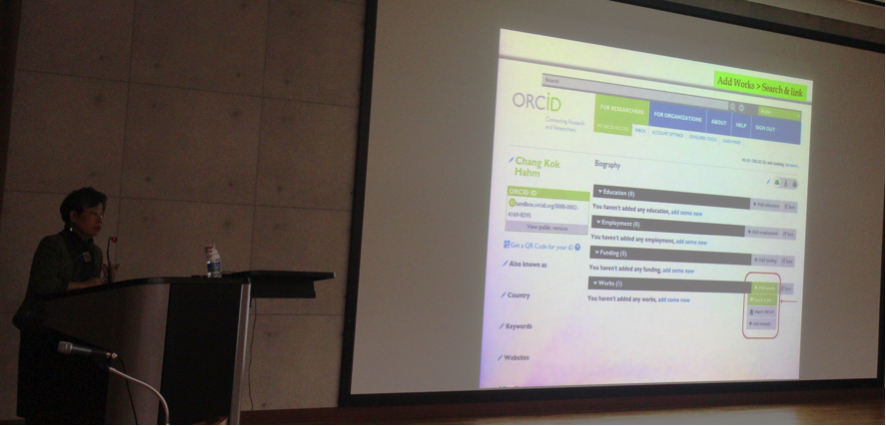We are delighted to announce that KoreaMed, a service of the Korean Association of Medical Journal Editors (KAMJE), now allows researchers to search, select, and link KoreaMed articles directly from the ORCID interface to their ORCID record.
Since its launch in 1999, KoreaMed has focused on providing global access to Korean medical journals by preparing all the metadata in English and aggressively adopting global publishing standards such as PubMed XML, JATS, and DOI. “It was only natural to integrate ORCID in KoreaMed, considering the difficulty of name disambiguation in our country,” said Dr. Tae-Il Kim, Professor and Vice Dean of the School of Dentistry at Seoul National University and Vice Chairman of the KAMJE Information Management Committee.
The three most common Korean last names – Kim, Lee, Park – account for nearly half of the Republic of Korea’s population, and these names can have multiple transliterations. Soon after the ORCID Registry started in October 2012, KAMJE introduced ORCID to its journals, and made it possible to search authors by their iDs in KoreaMed and Synapse, KAMJE’s digital archive and DOI landing platform. KoreaMed indexes more than 200 journals, many of which already facilitate the ORCID auto-update by Crossref so that newly published articles are added to ORCID records automatically once granted permission by the author.
“KoreaMed’s archives go back to the 1950’s. Previously, adding these old articles to ORCID records was difficult as they don’t have DOIs and are not searchable in Crossref Metadata Search or other tools provided by ORCID,” said Dr. Choon Shil Lee, Sookmyung Women’s University professor and KAMJE Committee member. With the new KoreaMed Search & Link wizard, however, researchers publishing in Korean journals can easily add their past publications and make their ORCID records more complete. Once an article is claimed, it will be searchable by ORCID iD (as well as by researcher name), providing a more accurate author search in KoreaMed. The works added to ORCID records from KoreaMed will retain their KUID, a unique article identifier in the database, making it possible for other ORCID integrators to match articles easily by known KUIDs.
For a step-by-step introduction to this new tool, please see Dr. Lee’s slides presented at the KAMJE Editor’s Academy on December 9, 2016.
“KAMJE is operated by a group of researchers and journal editors. We are all enthusiastic to improve the accessibility and visibility of our own work. Local journals in any country would be less visible from the rest of the world unless we in the research community make the effort ourselves,” said Dr. Oh Hoon Kwon, KAMJE Vice President and Information Management Committee Chairman. Their volunteer spirits resonate well with ORCID’s community-driven approach, and we welcome the addition of KoreaMed Search & Link Wizard.

Dr. Choon Shil Lee, presents KoreaMed’s Search & Link Wizard at the KAMJE Editor’s Academy, December 9, 2016
